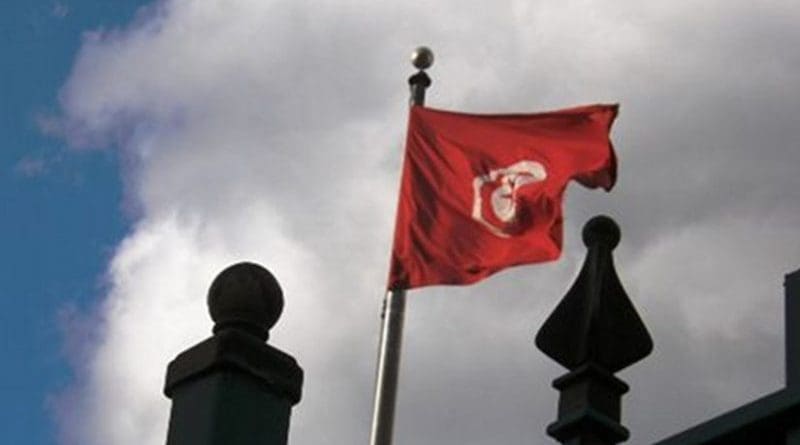US Right To Back Tunisian People Over Brotherhood – OpEd
By Arab News
By Dalia Al-Aqidi *
While the Muslim Brotherhood was enjoying ultimate power in its last stronghold in the Middle East, the people of Tunisia were left to struggle due to the deterioration of the country’s economic, political and medical conditions. Gas, fuel and food prices have shot up, in conjunction with a rapid increase in the unemployment rate.
The desperate Tunisian people had no choice but to rise up against injustice and corruption, just like they revolted against former President Zine El-Abidine Ben Ali 11 years ago. This time, it was against the Muslim Brotherhood party, Ennahda, which miserably failed in its attempts to build an institutional state.
Their cries were not in vain, as Tunisian President Kais Saied quickly responded to the demands of his people, announcing strict corrective measures to end the structural chaos and prevent a possible civil war.
Saied brought down the curtain on the last play of horrible actors who used their religious slogan to steal a whole country. He invoked the emergency powers given to him by the country’s constitution to dismiss Prime Minister Hichem Mechichi for failing in his duties, suspend the parliament for 30 days, and strip lawmakers of their immunity from prosecution.
A strict but wise month-long nationwide curfew was announced to maintain the safety of the people, should the Islamist group decide to repeat the Egyptian scenario of 2013, when the late President Mohammed Morsi was removed.
Washington was taken by surprise by the political developments in Tunisia, but the US administration did not jump to defend the Islamist group and refrained from describing the events as a coup. On Monday, Press Secretary Jen Psaki told reporters that the White House had not made a determination on whether it was a coup, adding that it wanted the State Department to conduct a legal analysis.
Not a coup. This statement came as a major disappointment to the countries that were counting on Ennahda as an important Muslim Brotherhood power in the region, following its failures in Algeria, Morocco, Egypt, Sudan, Jordan and others.
It seems that US President Joe Biden has learned from former President Barack Obama’s mistake, when he stood by the Islamist group in 2013, on the pretext of democracy and against the will of the Egyptian people, causing a rift in relations between the two countries for a couple of years.
Secretary of State Antony Blinken, meanwhile, spoke to President Saied and stressed America’s support for the Tunisian people as they face the dual challenges of an economic crisis and the coronavirus pandemic, according to spokesperson Ned Price, who added that Washington will continue to monitor the situation and stay engaged.
Biden and his Democratic Party need to understand the dangers of the Muslim Brotherhood, which has proved throughout its brief experiences in different parts of the region that its method of governing is based on marginalization, corruption, radicalism and terrorism in the name of democracy. There are no moderate members or moderate sides in this radical group, which uses religion to mislead people and force them to follow their ideology.
The US should not ignore the will and the demands of the Tunisian people, who have protested against corruption, poverty and political repression. They gave their word when they rejected the calls of Parliament Speaker Rached Ghannouchi to join him outside the parliament building at 3 a.m. to defend the Ennahda party against the “coup.”
There are serious challenges ahead as Tunisia seeks a new government to serve the people and lead the country away from the 10 years of turmoil under Ennahda. The Biden administration has a golden opportunity to finally make one right decision in the Middle East and North Africa region by pressuring the main players that support the Muslim Brotherhood to refrain from interfering in Tunisia’s internal affairs and let the Tunisians determine their own future.
* Dalia Al-Aqidi is a senior fellow at the Center for Security Policy. Twitter: @DaliaAlAqidi


Arab News should also talk about the freedom of Saudi people and the violation of human rights in the entire system from police to detention to torture to conviction to secrecy and more. Blind support of any country and democratically elected govt being removed before next election is due is hypocritical for Arab News and the author. They will cry if ousting of a govt happened to Gulf’s client countries in the Arab world.